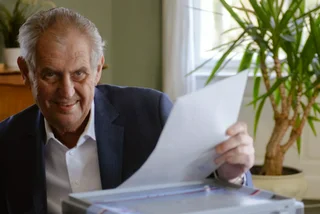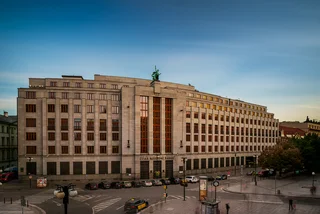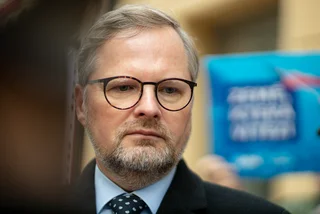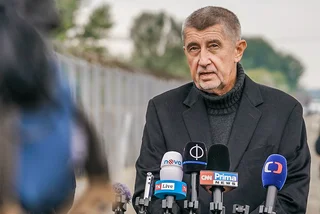President Zeman suffers from hepatic encephalopathy, sources claim
Deník N has claimed to know the exact diagnosis of hospitalized President Miloš Zeman, based on information provided by various medical and political sources. They claim the President suffers from hepatic encephalopathy, a condition related to serious liver failure. Such a serious diagnosis would make the President’s health condition far worse than has so far been admitted by Castle spokespeople.
Hepatic encephalopathy is a reversible set of neuropsychiatric symptoms occurring as a result of acute liver failure, including sleep disorders, confusion, disorientation, or even coma in more serious cases. Treatment can include a liver transplant. Separate sources have claimed the President is struggling to communicate. Jiří Ovčáček, the President’s spokesperson, has insisted that Zeman’s health will not obstruct post-election negotiations, while Zeman has not given permission for his official diagnosis to be made public.
Bohemia Energy files bankruptcy, casualty of energy crisis
The bankruptcy of Bohemia Energy, the largest supplier of alternative energy sources in the Czech Republic, will necessitate the transferal of customers to other energy suppliers. Around 900,000 customers will gradually be switched to other providers, with temporary energy provision from Pražská energetika (PRE) and Pražská plynarenská.
The provision of energy by companies in which the City of Prague has a direct stake is intended to promote a stable supply of gas and electricity to Prague residents, according to City Hall. Customers have six months to find a new long-term supplier of energy. Bohemia Energy declared bankruptcy after sharply rising prices led to an exodus of customers. The company is the latest victim of a Europe-wide energy crisis leading to sharp spikes in prices in countries across the continent.
Coalitions vow to sign government pact by November 8
The SPOLU and Pirates+STAN coalitions are conducting talks on forming the next Czech government with the hope of signing their coalition pact by November 8, ODS leader Petr Fiala said. November 8 is expected to be the date on which the new Chamber of Deputies convenes for the first time. Fiala said the coalitions have agreed on the creation of six action groups to deal with separate spheres of the new government’s political program.
Later, the coalitions will negotiate the specific structure of the government, the allocation of ministries, and the make-up of the board of the Chamber of Deputies. They hope to have all aspects of their government program agreed by the first meeting of the new Chamber. Fiala said talks so far have been friendly and fair.
Financial regulator made no mistake in Pandora Papers case
A commission supervising the activities of the Czech Financial Analytical Office (FAU) found that no mistakes were made in the case of Prime Minister Andrej Babiš’s controversial purchase of French real estate in 2009. The commission found that Babiš sent the money for the purchases from a Czech bank, but the unusual transaction was not reported to the FAU, either by Czech or foreign bodies.
As the FAU received no report of any suspicious transaction, it did not neglect its duties, the commission said. Babiš was revealed to have used a complex system of offshore companies to purchase luxury properties worth CZK 380 million by the international Pandora Papers investigation. At the time, Babiš was not involved in politics, and the Prime Minister has dismissed all accusations of wrongdoing relating to the case. A Senate commission previously said the acquisitions show signs of criminal activity including fraud.
Czech Republic ranked 22nd in Rule of Law Index
The degree to which the Czech Republic is subject to the rule of law has not changed significantly since last year, according to the Rule of Law Index compiled by the World Justice Project non-profit organization. The Czech Republic finished 22nd out of the 138 countries included in the report
While the Czech Republic’s situation has remained stable, the report found a deterioration in the rule of law in three quarters of the countries surveyed, confirming the negative trend seen in recent years. The Czech Republic scored 0.73, on a scale from zero to one. The country’s biggest problems are with corruption and civil laws, according to the report. The most significant declines in rule of law were seen in Belarus and Burma, while Poland also saw a major decrease. The top four positions were occupied by the Scandinavian countries.
Meeting highlights tensions over new Ostrava skyscraper
A meeting of regional representatives in Ostrava led to a deadlock in negotiations of the construction of a major new skyscraper in the city center. Debate focused on the terms of the contract for the development with the project investor RT Torax. After fractious debate, a draft amendment to the contract was finally passed.
The 235-meter Ostrava Tower will be the tallest building in the Czech Republic. Conservationists and opposition representatives say the development will dominate the cityscape to an undesirable extent, while its high energy consumption make it “symbolic of self-centeredness and extravagance.” Debate on the contract concerned the necessary removal of defective ground on the site of the new building. Those opposed to the project said the dispute was the last chance to stop the development in its tracks.
Czechoslovak freedom fighter Bohuslav Horak commemorated
A plaque has been unveiled commemorating Bohuslav Horák, a Czechoslovak anti-Nazi and anti-Communist freedom fighter, at his former home in Černilov, East Bohemia. Horák was also the husband of Milada Horáková, a politician executed by the Communist regime after a show trial in 1950.
Born in 1899, Horák was imprisoned by the Nazis during the Second World War. After the war, he and Horáková joined the anti-Communist resistance movement. After Horáková’s arrest, Horák departed the country for Germany, before leaving for the U.S.A. to work for U.S. intelligence in 1954. He never returned to Czechslovakia, and died in Washington in 1976. He was buried in Běleč nad Orlicí, near Černilov.












 Reading time: 4 minutes
Reading time: 4 minutes 


































